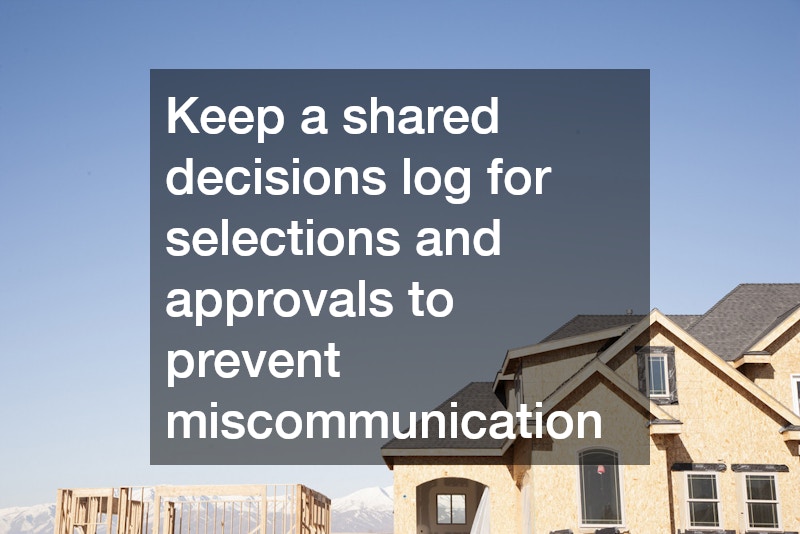Building or renovating a home is a major investment, so the way you vet a contractor matters as much as the design. Verify state and local licensing, active general liability and workers’ compensation insurance, and request references for recent projects. Ask for an itemized proposal that separates labor, materials, allowances, and exclusions so you can compare bids fairly. A reliable builder provides a realistic schedule, flags long-lead items, and explains how change orders are handled, including pricing and approvals.
Strong documentation protects your budget and timeline.
Insist on a written contract that defines scope, specifications, milestones, and a payment schedule tied to progress rather than calendar dates. Confirm who will pull permits, coordinate inspections, and supervise subcontractors each day. Set site rules in writing: work hours, debris disposal, dust control, and protection for floors and landscaping. Require lien releases with each progress payment, and make sure subcontractors carry licenses and insurance.
Quality management does not end at the final nail. Plan for pre-drywall and final walkthroughs, create a punch list with due dates, and schedule system start-up orientations for HVAC, plumbing, and electrical. Keep a shared decisions log for selections and approvals to prevent miscommunication. Retain manuals, paint formulas, and serial numbers to simplify future maintenance and warranty claims. Ultimately, choose a team that communicates clearly and respects your budget. The right partner for residential construction services turns complexity into a smooth, predictable build, from groundbreaking to the final clean.

